 Melissa Anderson
Melissa Anderson
Dag Johan Haugerud’s trilogy concludes with the portrayal of a teenager who writes a manuscript detailing her infatuation with
her high school teacher.
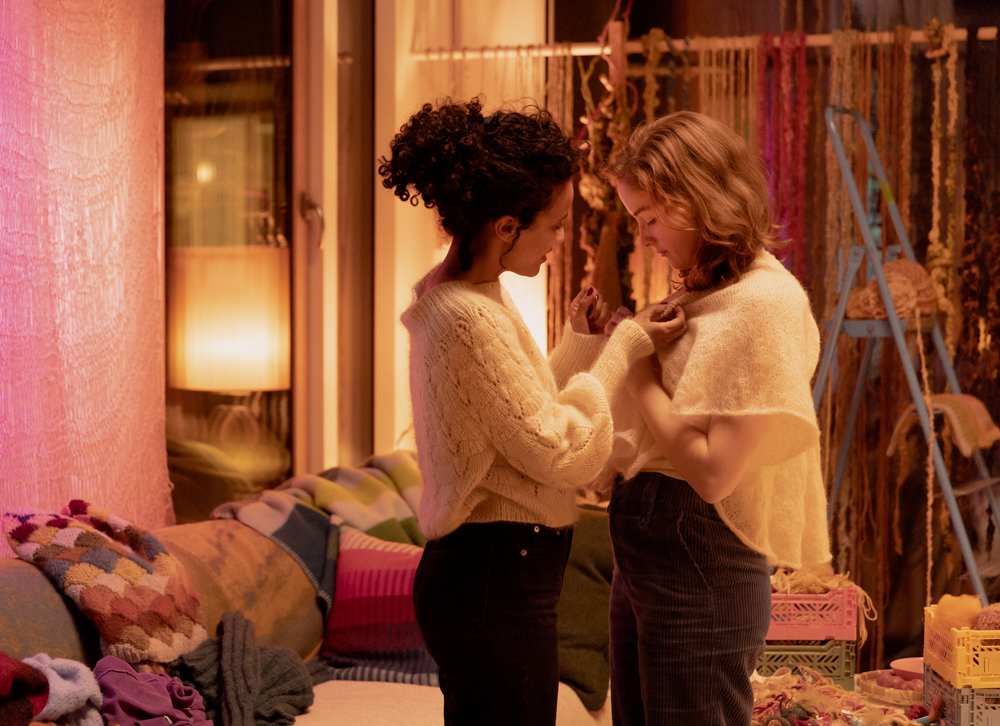
Selome Emnetu as Johanna and Ella Øverbye as Johanne in Dreams. Photo: Agnete Brun / K1.
Dreams, written and directed by Dag Johan Haugerud, now playing at Film Forum, 209 West Houston Street, New York City, opens September 19, 2025 in Los Angeles and San Francisco
• • •
Easily the most voluble movies of the year, Norwegian filmmaker Dag Johan Haugerud’s Love, Sex, and Dreams have, at their best moments, reinvigorated the dramatic and erotic pleasures of the well-orchestrated onscreen conversation. The elemental titles for each entry in this Oslo-based trilogy—which can be watched in any order—accurately reflect the weighty subject matter explored. All are concerned with emotional and sexual connection, desire, and fantasy and, just as crucially, how these affective states are articulated and negotiated.
The first of the triptych to be released in the US, Love (which opened in May) is the best of the three, tracing the parallel romantic lives of two hospital colleagues: Marianne, a fortyish heterosexual doctor, and Tor, a late-millennial gay-male nurse. Both are richly drawn protagonists, as are the minor characters in this nimble examination of intimacy. Two coworkers—both chimney sweeps and (ostensibly) heterosexual husbands and fathers in early middle age—are also the focus in Sex. Although abundant in entrancing tête-à-têtes, especially in the opening scene, which finds one of the leads telling the other about having sex with a man for the first time just the day before, the principals—never named, an anonymity that extends to most of the cast—remain more opaque to us than those in Love.
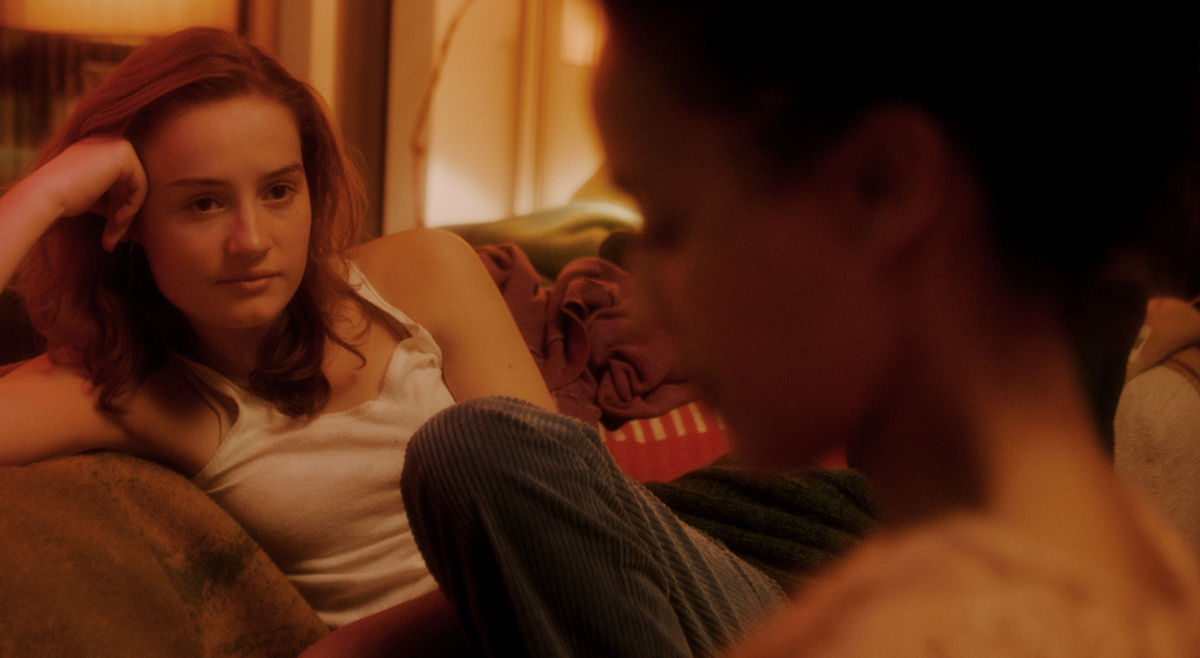
Ella Øverbye as Johanne and Selome Emnetu as Johanna in Dreams. © Motlys.
Dreams similarly delights and frustrates. Boasting a superb, alert performance by Ella Øverbye—who plays Johanne, a bright seventeen-year-old besotted with her French teacher, Johanna (Selome Emnetu)—the final installment in the trio is the only one to rely heavily on voice-over narration and flashback. These devices have a distancing effect, removing us from the kinetic immediacy of Love and Sex, in which nearly every scene transpires in the present tense. Both Love and Sex, in fact, begin in medias res, plunging us into detail-dense discourse—a grim diagnosis being given in the former, an oneiric vision of David Bowie recounted in the latter. Dreams, in contrast, commences more vaporously. Over a shot of Skibakketrappa, Oslo’s quasi-landmark “ski-slope stairs,” enshrouded in fog, Johanne delivers this line of offscreen narration: “My life is in a cloud.”
The declaration befits any self-dramatizing adolescent, but Johanne, despite her age-appropriate surfeit of feelings, emerges as the most intelligent, noblest character in Dreams. Chatting with her modern-dance teacher after class about her love of reading—her ease with him evincing her maturity—Johanne is somewhat bewildered by his dull-witted comment that “not everything in books is true.” She responds, “Sure. But that’s not why I read. To find out what’s true” before their chat is drowned out by her voice-over, completing her thought: “I read to have a place to go. And to arrive at myself.” It’s a lovely sentiment—one that would have landed with more potency had it been uttered as the scene with the instructor unfolded.
The teenage bibliophage has an erotic awakening while reading a novel about a sixteen-year-old girl who falls in love and has sex with a friend’s artist uncle—feelings that are reignited months later when she sees Johanna at the front of the classroom for the first time. Watching this coup de foudre manifest in the student—her eyes ablaze with joy, a slack-jawed smile conveying complete infatuation—evokes a flower bending toward the sun. Again the wish is to linger longer in this transformative moment, but the scene segues too soon to a montage of Johanne at home and at school as she details, in reams of voice-over, how her crush continued to build and derange her.
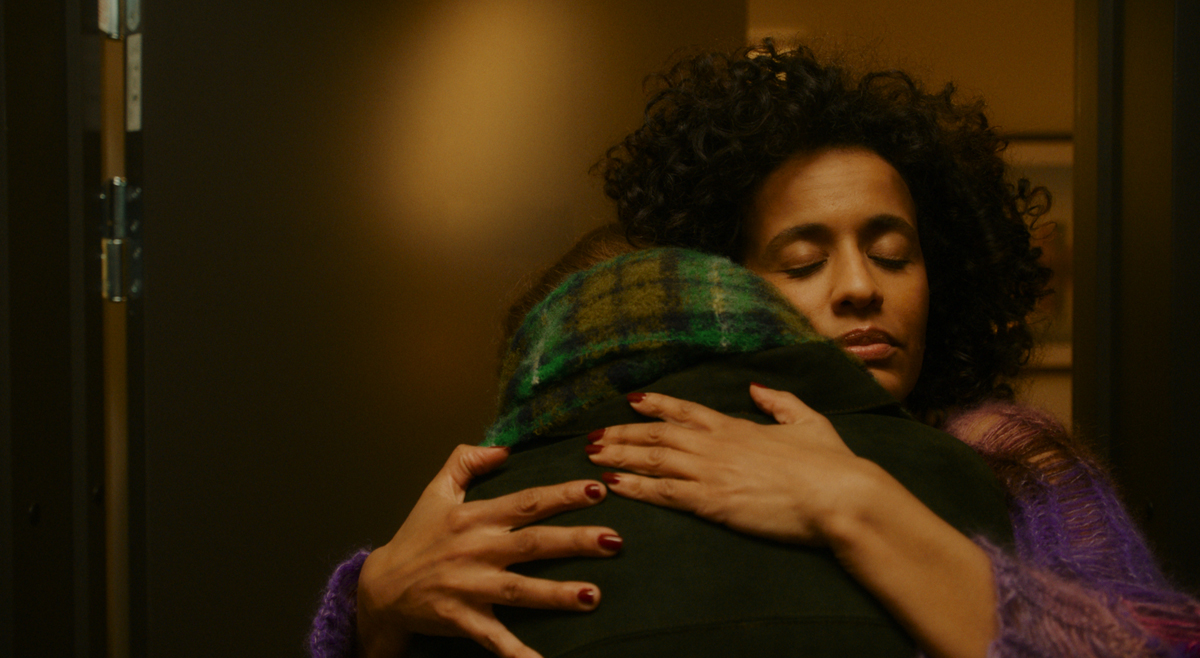
Ella Øverbye as Johanne and Selome Emnetu as Johanna in Dreams. © Motlys.
Lovesick, the girl believes she has no choice but to go to her teacher’s apartment to confess her feelings. After Johanna opens the door to find her pupil crying, she embraces the teenager, the scene cutting to black for a few ominous seconds. Dreams then jumps a year ahead, occasionally toggling back to the nine visits Johanne made to her instructor’s flat, episodes the teenager has transformed into a ninety-five-page manuscript.
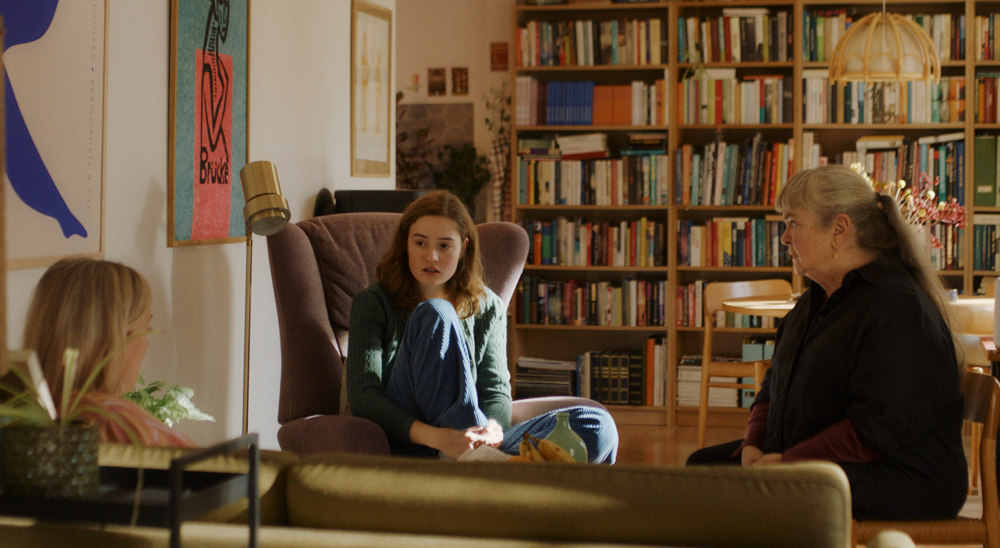
Ane Dahl Torp as Kristin, Ella Øverbye as Johanne, and Anne Marit Jacobsen as Karin in Dreams. © Motlys.
As the film spotlights Johanne’s conversations with her mother, Kristin (Ane Dahl Torp), and grandmother, Karin (Anne Marit Jacobsen), about those pages, Dreams becomes, at times too didactically, a referendum on autofiction, the inexorable impoverishment of imagination in the twenty-first century, and the desire to mine and monetize any personal experience (even if not one’s own) into “relatable content.” Grandma, a poet, and Mom, whose occupation (or lack thereof) is never disclosed, are astonished by the text’s sexually explicit passages, neither one quite sure which parts are true and which fabricated. Their prolonged debate over the matter occasions glib digs at podcasts and trauma narratives, part of the film’s larger swiping at current-day fatuities such as selfies, Twitter, emojis, reality-TV shows, and sleep apps.
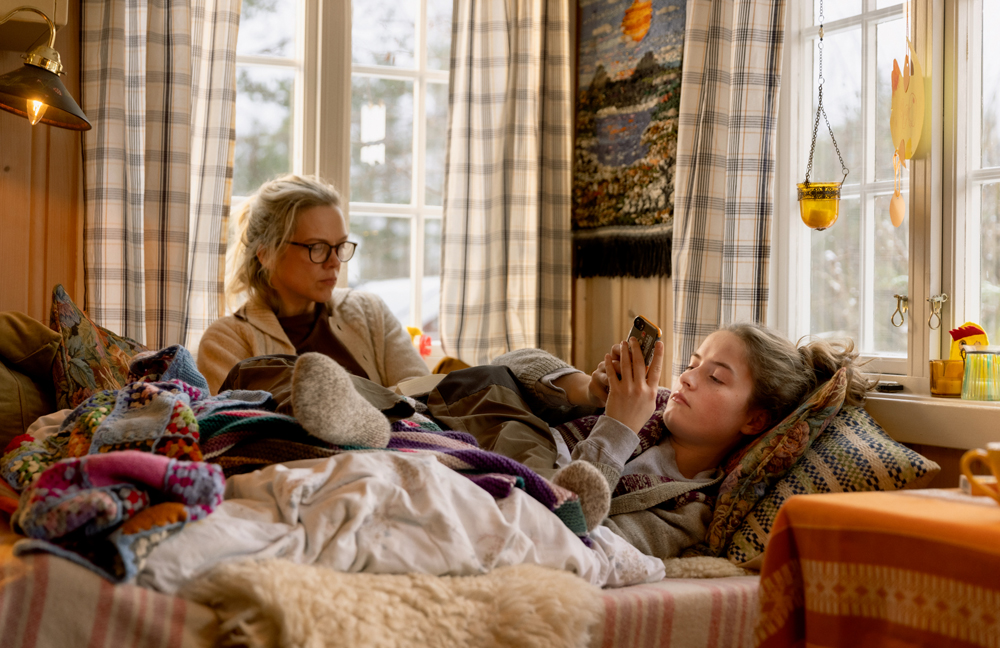
Ane Dahl Torp as Kristin and Ella Øverbye as Johanne in Dreams. Photo: Agnete Brun / K1.
This blunt deprecation of our tech-ruined lives comes perilously close to stating the already too-obvious and stands in marked contrast to how devices and app-enabled dating are handled in Love, which wisely presents them without comment. As it happens, a character from Love makes an appearance near the end of Dreams, in a segment that affords Johanne her most intelligent, sustained discussion with an adult—her relatives and even the teacher who once consumed her every thought ultimately revealing themselves to be maudlin, mercenary, and/or self-serving.
The enrapturing flow of Johanne’s exchange with this sage interlocutor helps mitigate the more nettling aspects of Dreams and reminds us of what Haugerud’s trilogy does so well: dramatize the process by which two people, whatever their connection, are altered by the give-and-take of candid conversation, by the intimate act of speaking and listening. About midway through Dreams, an editor who’s read Johanne’s manuscript extols its effect on her: “I felt an urge to go outside. Be more present in the world.” No matter their flaws, after each viewing over the past five months of Love, Sex, and Dreams, I’ve felt the same.
Melissa Anderson is the film editor of 4Columns and the author of a monograph on David Lynch’s Inland Empire from Fireflies Press. A collection of her film criticism, The Hunger, will be published in November by Film Desk Books.